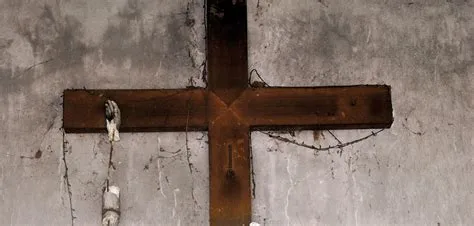In the heart of Lahore, a young Christian man’s life is in turmoil after a false accusation of blasphemy has led to an unprecedented chain of events. Asher Rasheed Bhatti, a law-abiding citizen and an Altar Boy at St. Matthew’s Church in Awan Market, has been forced into hiding after being accused of posting derogatory content about the Holy Prophet Muhammad (PBUH) on Facebook. The accusation, however, is not as clear-cut as it seems. The young man claims to be the victim of a malicious attack orchestrated by his uncle, Paul (Samuel) Masih, who allegedly created a fake Facebook account in Asher’s name to frame him for an offense he did not commit.
The case, which has rattled the community and caught national attention, began on September 14, 2025, when Muhammad Umair, a local bookshop owner, discovered what he described as “blasphemous sketches and derogatory content” posted on a Facebook account under the name “Asherbhatti.” Umair’s allegation triggered an FIR (First Information Report) at Nishtar Colony Police Station under Section 295-C of the Pakistan Penal Code (PPC), a law that carries a mandatory death sentence or life imprisonment for anyone found guilty of defiling the name of the Holy Prophet Muhammad (PBUH). This law, which has caused immeasurable suffering to many innocent people in Pakistan, stands as a sword of Damocles over the lives of religious minorities, particularly Christians like Asher Bhatti.
The situation escalated further when Umair claimed that Asher’s uncle, Paul Masih, had not only posted the offensive material but also intensified the matter by commenting on the posts. This act, according to Umair, was an incitement to hatred, deeply injuring the religious sentiments of Muslims. The case was immediately registered under the country’s highly controversial blasphemy law, which has been notoriously misused to target religious minorities and settle personal vendettas.
What followed was a tragic twist in Asher Bhatti’s life. Desperate to clear his name, Asher filed a counter-complaint with the National Cyber Crimes Investigation Agency (NCCIA), Lahore, claiming that he was innocent and that his uncle had maliciously framed him. Asher, in his application, asserted his respect for all religions and prophets, emphasizing his lifelong commitment to peaceful coexistence. He described how his uncle, Samuel Paul, had been issuing threats via his own Facebook account, pushing Asher into severe mental distress. Fearing for his life and safety, Asher went into hiding.
Asher’s case has revealed the dark side of Pakistan’s blasphemy laws, laws that have long been weaponized to target vulnerable communities. Nasir Saeed, Director of CLAAS-UK (Centre for Legal Aid Assistance & Settlement), has called this case a tragic example of how blasphemy laws are grossly misused. He pointed out that Asher Bhatti is the innocent victim of a vicious personal attack, yet his life has been irreparably shattered. Saeed further emphasized that the misuse of Section 295-C is not just destroying individual lives but is also creating a culture of fear, particularly for Pakistan’s religious minorities.
“This case is not unique,” said Saeed. “Thousands of innocent people, including women and children, are languishing in prisons under false blasphemy charges. Tragically, some have been murdered by vigilantes before their cases even went to trial. This law is being abused to settle personal grudges, inflame communal tensions, and target vulnerable groups. Social media has become a powerful tool in this misuse, with false cases being fabricated to harm individuals and incite hatred.”
The case of Asher Rasheed Bhatti is a stark reminder of the deep flaws in Pakistan’s blasphemy laws, which allow for accusations to be made without evidence, and punishment to be swift and merciless. Asher Bhatti, a young man who has done nothing wrong, now lives in fear for his life. His story is a powerful call for reform—reform that would ensure that no one is wrongly accused or targeted for personal or religious vendettas.
The urgency for change has never been clearer. The Pakistani government must take immediate steps to reform Section 295-C and ensure that it is not misused to violate the rights and freedoms of its citizens. Blasphemy laws must not be allowed to remain a tool for exploitation, religious persecution, or personal revenge. Until these laws are reformed, the cycle of fear, injustice, and violence will continue to destroy lives, like the life of Asher Bhatti.
As Asher hides in an undisclosed location, his fate hangs in the balance. His story is just one of many, but it shines a light on the urgent need for change in a system that has allowed the innocent to be persecuted, their lives shattered by false allegations and flawed laws.
